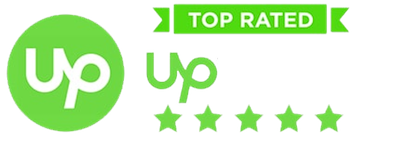Your website is often the first impression for a potential buyer. If your site looks sloppy, it could be a turnoff. Your site should also be easy to navigate and packed with helpful information. In this post, we will learn about the most important elements of a successful website that can boost your speaker profile.
Be clear on your purpose.
First, be clear on your purpose. Who is your audience? What is the goal of your website? Your site can be an extension of who you are and what you do in the world.
Also consider being transparent about who you are as a speaker, which may mean sharing some “warts” or “weaknesses.” As people, we tend to put our best foot forward all the time, but there’s something freeing about sharing more candid photos and videos that show off our personality and perhaps even some quirks that make us unique (we’re human!)
Use a compelling tagline.
Next, you’ll need to write a tagline. It should be short, memorable, and descriptive. It should be a good summary of what you do and why you do it, so people can understand your business at a glance. The best taglines are easy to say and remember—they can even double as slogans or mottos that stick with your audience long after they’ve left your site or conversation.

Use a high-quality headshot and relevant, eye-catching images.
- Choose a high-quality headshot.
- Use a professional photographer to shoot your headshot and profile photos.
- Make sure your images are consistent with your brand, but also be sure they’re relevant to the topic(s) you speak on and eye-catching enough to get people interested in learning more about what you do!

Choose one main call to action.
In order for your call to action to be effective and boost conversions, the CTA needs to be clear. You want your visitors to know exactly what they’re clicking on when they come across it. It should also be one main CTA that can guide them through the rest of your site—if you have multiple CTAs, it’s confusing and might cause them to bounce from your page as soon as they see another option that catches their eye.
Lastly, make sure that any link you include in a CTA has something valuable behind it—like an eBook or page with resources—and is relevant enough for people who are currently browsing through your site. This will help ensure that if someone decides to take action by clicking on one of these links, they won’t regret it!

Make it easy to contact you.
- Make sure you have a contact form on your website.
- Make sure you have a telephone number and email address on your website.
- Make sure you have a social media presence, and that it’s easy to find on Google (e.g., by including your Twitter handle in the footer of every page).
- Be active on social media: posting regularly, responding to comments, engaging with other people in the industry (or space), etc. This will help build trust with potential clients/customers who come across these posts in their feed or search for your name online when researching brands/people they might want to work with (e.g. if they’re looking for speakers).

Link to your speaker video and other media.
In the past, speakers were invited to speak at events based on their expertise. Today, it’s all about the speaker video. If you’re asked to submit one, make sure it’s professional and polished.
If you haven’t done a professional recording yet or would like help polishing up your current one, we have a few tips for you:
- Add in some background music that doesn’t distract from what you’re saying.
- Make sure there are no distracting sounds such as typing or clicking keys in the background
- Get rid of any background noise by using white noise or other sound masking techniques if necessary.

Arrange your information in an intuitive way.
To make your website easy to navigate, you should:
- Use a navigation menu. It’s important that visitors to your site can find the content they’re looking for quickly and easily—so incorporating a navigational menu is essential. When it comes to design, think about how you want to arrange the categories on your site.
- Create blog/news pages with relevant content from social media channels like Facebook or Twitter; this will help keep people engaged with both old content as well as new information about upcoming speaking engagements or events related to your career trajectory in public speaking, writing books & consulting, etc.

Use testimonials to market your services
Testimonials are a great way to market your services. You can use them to demonstrate your expertise, or simply point out that you’ve worked with other clients and had success in the past. In addition, testimonials can be used as an effective marketing tool because they make it easier for prospects to decide whether or not they want to work with you.

Your site should make it easy for decision-makers to choose you as a speaker, and then reach out and book you.
- The site should be easy to navigate. If the site is too hard to navigate, it’s likely that your clients will find other speakers who have sites that are easier to navigate.
- The site should be easy to read. If you don’t put the right information on your website, people won’t want to read it! They’ll just leave and go somewhere else where they can find what they’re looking for immediately instead of trying (and failing) at yours.
- The site should be easy to find your contact information including social media links so attendees can get in touch with you after their event! This also gives them another way besides email or phone number if one method fails them (if there’s no reception at an event venue). You can add links about things like speaking fees or rates.
Conclusion
We hope these tips will help you create a website that’s as good as you are. It’s not always easy to get started, but it’s worth it when you see the results. And if all else fails, remember to take things one step at a time—you can always add more information later on!


